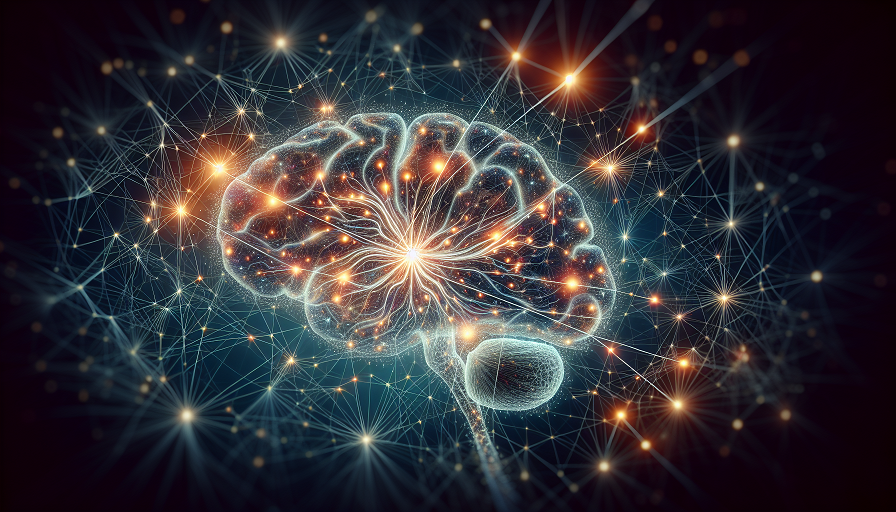
Have you ever walked into a cluttered room and instantly felt overwhelmed? You’re not alone. Science shows that the state of our physical environment profoundly affects our mental state. Decluttering is more than tidying up—it’s a transformative process that clears not only your space but also your mind. Let’s unpack the surprising ways decluttering can sharpen your focus, boost your productivity, and enhance overall mental clarity.
Contents
The Science Behind Clutter and Cognitive Overload
Clutter doesn’t just take up physical space; it occupies mental real estate too. Understanding how clutter affects the brain can provide motivation to take action.
Visual Noise and Mental Fatigue
A cluttered environment bombards your brain with visual stimuli, forcing it to process irrelevant information. This “visual noise” makes it harder to focus on tasks and increases cognitive fatigue. A study from Princeton University found that individuals working in an organized environment were more productive and less stressed than those surrounded by clutter.
The Role of Decision Fatigue
Every item in your space represents a decision—keep it, move it, or use it? The more clutter, the more decisions your brain has to make, leading to decision fatigue. This reduces your ability to focus on important tasks, like work or personal goals.
Real-Life Example
Consider Maria, a busy graphic designer. After decluttering her workspace, she noticed she could find tools more easily, reducing interruptions and increasing her creative output.
How Decluttering Reduces Stress
Cluttered spaces are often linked to higher levels of stress and anxiety. Decluttering is a simple yet effective way to create a calming environment and reduce stress hormones.
The Cortisol Connection
Research shows that cluttered homes are associated with elevated levels of cortisol, the stress hormone. Decluttering not only creates order but also signals to your brain that it’s time to relax and unwind.
Creating a Peaceful Environment
A clean, organized space feels like a breath of fresh air. For example, a tidy bedroom promotes restful sleep by removing distractions and fostering a sense of tranquility.
Practical Tip
Start small. Dedicate 10 minutes daily to decluttering a single drawer or corner. These small wins reduce stress and build momentum for larger projects.
Improving Focus and Productivity Through Decluttering
A clutter-free environment makes it easier to focus, prioritize, and accomplish tasks efficiently. It’s like giving your brain a clean slate.
Boosting Focus with a Clear Desk
Imagine working on an important project with papers, sticky notes, and random objects covering your desk. Now, picture the same project on a clear, organized surface. The difference is striking—removing clutter eliminates distractions and allows your mind to concentrate fully.
Streamlining Workflow
Organized spaces improve efficiency by reducing the time spent searching for items. A labeled filing system, for example, saves precious minutes and mental energy, enabling you to tackle tasks faster and with less frustration.
Real-World Application
Jake, an IT consultant, revamped his home office by organizing cables and decluttering his desk. The result? A noticeable boost in productivity and fewer interruptions during client calls.
The Emotional Benefits of Letting Go
Decluttering isn’t just about organizing—it’s about letting go of what no longer serves you. This process can be emotionally freeing and provide a mental reset.
Breaking Emotional Attachments
Many people hold onto items for sentimental reasons, even if they no longer use them. Letting go of these items can feel liberating, making room for new opportunities and experiences.
Building Confidence Through Decisions
Each decision to keep or discard an item strengthens your decision-making skills. Over time, this practice builds confidence and reduces the fear of letting go, both in your space and in life.
Practical Strategy
Use the “joy test” popularized by Marie Kondo: hold an item and ask yourself if it sparks joy. If it doesn’t, thank it for its service and let it go. This simple method makes the process feel purposeful and empowering.
Decluttering as a Mindfulness Practice
Decluttering isn’t just a task—it’s an opportunity to practice mindfulness. Focusing on the present moment during the process enhances mental clarity and emotional well-being.
Engaging Your Senses
Decluttering invites you to engage your senses fully. Pay attention to the textures of objects, the sounds of organizing, and the visual satisfaction of an orderly space. This mindfulness sharpens your awareness and reduces stress.
Staying Present
As you sort through items, avoid rushing. Focus on one item at a time, appreciating its role in your life. This approach transforms decluttering from a chore into a meditative practice.
Real-Life Inspiration
Emily, a teacher, found that decluttering her classroom at the end of each semester gave her a sense of closure and clarity. The mindful process allowed her to start each new term with fresh energy.
Pairing Decluttering with Cognitive Enhancers
Decluttering sharpens your mind, but pairing it with cognitive tools like brain supplements (nootropics) can amplify the benefits. Nootropics support focus, memory, and decision-making, making them ideal companions for this mental exercise.
Improving Focus with Nootropics
Supplements like L-theanine and Rhodiola Rosea enhance mental clarity, helping you stay present and efficient during decluttering sessions. These cognitive aids reduce mental fatigue and keep you motivated.
Boosting Memory and Organization
Nootropics that support memory, such as Bacopa Monnieri, can improve your ability to recall where items belong or remember what you’ve already sorted. This creates a smoother, more effective decluttering experience.
Practical Tip
Take a nootropic supplement before starting a decluttering session to enhance focus and decision-making. Always consult a healthcare professional before introducing new supplements into your routine.
The Transformational Power of Decluttering
Decluttering isn’t just about tidying up—it’s a transformative practice that improves mental clarity, reduces stress, and enhances focus. By creating a more organized and mindful environment, you can unlock greater productivity and emotional well-being. Pairing decluttering with tools like nootropics can take these benefits to the next level, giving you a clear mind and a fresh start in both your space and your life.
